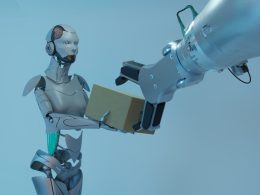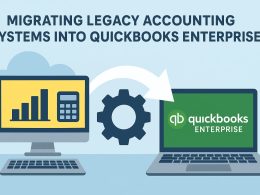Introduction
The internet has for years been a market of niches. You visit a site to learn how to code, another for startup studies, and another for mindfulness tips. Really, the contemporary web appears to be based on specialization—tiny corners of the internet providing know-how in one area. But something interesting is going on. Sites like Aviyne. com are bucking the siloed trend, trying to consolidate seemingly separate domains such as technology, business, and well-being under one umbrella.
The question is basic: can one site accomplish everything—and do it well?
The Age of Specialization and Its Limits
For decades, specialization has powered online education. Udemy markets courses that are hyper-niche. Substacks rely on specialty audiences. LinkedIn Learning breaks modules into professional skill paths. That all adds up in an attention economy fragmenting into distractions: individuals desire precisely what they need, in a hurry.
But the issue is human life isn’t compartmentalized. The tech founder who’s having a problem scaling their app is also a human being who requires stress management strategies. The corporate CEO studying AI automation is also someone who cares about personal health and mental concentration. Addressing these areas in silos doesn’t match the real world. That’s where multi-disciplinary platforms come in.
Why Tech, Business, and Wellness Cross Over More Than You Realize
It might seem strange at first—having business tips alongside wellness tips, or computer tutorials alongside personal growth. But if you take a closer look, the intersection is clear:
- Technology fuels business. No serious business today expands without digital tools, data, and platforms.
- Business pressure affects well-being. Burnout is now one of the greatest dangers in high-performance careers.
- Wellness impacts performance. Mental acuity, emotional stability, and physical wellness all determine how well a person performs in both business and technology disciplines.
Short answer: These areas aren’t three parallel tracks. They’re a triangular system in which each side supports—or saps—the other.
Meet the Hybrid Learning Platform
This is where Aviyne. com is making its own mark. While other sites confine themselves to “just tech” or “just health,” it is trying out a mixed model. You may come across material on web application development with some tips on productivity or wellness habits for working professionals in between.
The bet is on the fact that a balanced learner is a better learner. Why learn someone to make a product if they break down halfway through bringing it to life? Why learn them leadership skills if the leader doesn’t have the clarity and focus to use them?
Through the integration of these fields, sites such as Aviyne.com are working to address a twenty-first-century challenge: information is abundant but integration does not occur.
The Challenges of Teaching Everything in One Place
Of course, the concept is not without danger. The instant a website purports to be a one-stop-shop for several fields, it threatens to sacrifice quality. The complexity of a Harvard Business Review feature isn’t comparable to a technology tutorial on Stack Overflow, nor the same as wellness tips from a qualified psychologist. Attempting to do all three under one umbrella threatens to dilute too much.
Additionally, consumers are not necessarily seeking overlap. A coder might disdain wellness advice packaged with their coding classes. A business administrator might want Harvard case studies unadorned by side trips through app development. A well-being enthusiast might not be interested in SaaS tools.
Therefore, the solution is not merely presenting content from different disciplines but blending them in a form that is felt to be natural and not arbitrary.
How Integration Could Actually Work
A future-oriented platform may thrive by understanding that these three worlds are intertwined via human experience. Ponder articles or learning paths that:
- Educate time management for programmers, combining tech workflow tools with productivity techniques.
- Teach entrepreneurs how to grow startups without sacrificing mental and physical endurance.
- Investigate AI in wellness applications, linking business potential in technology with individual well-being trends.
This type of cross-pollination does not water down content; it deepens it. Rather than visiting three separate sites, the learner experiences the complete system of how technology, business, and wellness shape one another.
Why Learners Are Ready for This Shift
The post-pandemic era has changed the mindset of the learner fundamentally. Work-life balance is no longer secondary—it’s in the middle of career strategy. Technology is not a stand-alone department—it’s the business’s bloodstream. And wellness is no longer a luxury—it’s a requirement for resilience.
Individuals now desire growth that is professional but also personal. They desire to start ventures without compromising their health. They desire to embrace technology without burning out. They desire to thrive in business without losing purpose and clarity.
That renders the “multi-discipline” website less of an anomaly and more of a requirement.
The Road Ahead
Can a single website really educate for tech, business, and well-being simultaneously? The answer is not a clear yes or no. It relies on execution. If the design is superficial, the model will buckle under its own hubris. But if the combination is deliberate—recognizing the intersections that occur naturally between human endeavors, tools, and wellness—then the model might revolutionize how online learning sites function.
Aviyne. com is an early foray in this hybrid trajectory. It may not supplant specialist sites, but it doesn’t need to. Rather, it can make its own niche for learners who experience their lives as integrated systems, not disconnected silos.
Final Thoughts
The actual question isn’t if one site can instruct tech, business, and wellness. It’s whether or not we need to keep pretending these disciplines are distinct when our reality refutes that notion. It’s not a gimmick to imagine a future where online spaces instruct across disciplines—it’s acknowledging human development is multi-dimensional.
The places that get that will not only teach but also empower enabling individuals to not just code better, not just manage better, not just live better, but all three together.
And if I’m honest with you, that sounds less like an experiment and more like the organic progression of internet learning.
Related Post: Lombok Yoga That Will Transform Your Mind and Body












